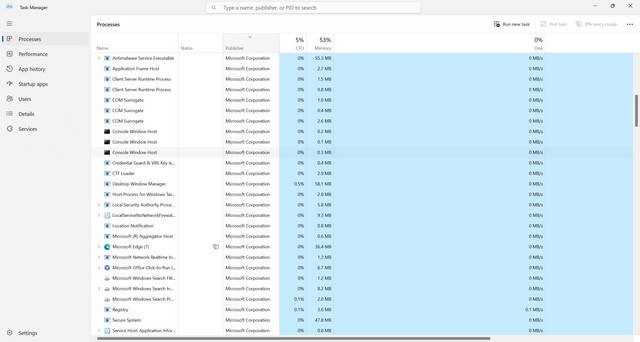Have you ever opened the Windows Task Manager and noticed a process called Runtimebroker.exe running in the background? If so, you may be wondering what it is and whether or not you should remove it. In this article, we’ll explore what Runtimebroker.exe is, what it does, and whether or not it’s safe to remove.

What is Runtimebroker.exe?
Runtimebroker.exe is a Windows system process that is responsible for managing permissions for Windows Store apps. It was first introduced in Windows 8 and has been included in every version of Windows since then.
When you install a Windows Store app, it needs to request certain permissions in order to function properly. For example, a photo editing app may need access to your photo library in order to allow you to edit your photos. Runtimebroker.exe is responsible for managing these permissions and ensuring that the app only has access to the resources it needs.
What does Runtimebroker.exe do?
As mentioned, Runtimebroker.exe manages permissions for Windows Store apps. When an app requests permission to access a resource, such as your camera or microphone, Runtimebroker.exe checks to see if the app has been granted permission to access that resource. If it has, Runtimebroker.exe allows the app to access the resource. If it hasn’t, Runtimebroker.exe prompts you to grant the app permission.
Runtimebroker.exe also manages app sandboxing. Sandboxing is a security feature that isolates apps from each other and from the rest of the system. This helps prevent apps from accessing resources they shouldn’t and helps prevent malware from spreading.
Is Runtimebroker.exe safe?
Yes, Runtimebroker.exe is a safe and essential Windows system process. It is not a virus or malware and should not be removed. Removing Runtimebroker.exe could cause Windows Store apps to stop working properly and could even cause system instability.
That being said, if you notice that Runtimebroker.exe is using an unusually high amount of CPU or memory, it could be a sign of a problem. In this case, it’s a good idea to run a scan with a reputable antivirus or anti-malware program, such as Malwarebytes Free, to ensure that your system is not infected with malware.
How to check if Runtimebroker.exe is running on your system
If you’re not sure if Runtimebroker.exe is running on your system, you can check by opening the Windows Task Manager. To do this, right-click on the taskbar and select “Task Manager” from the menu.
In the Task Manager, click on the “Details” tab. You should see a list of processes running on your system. Look for “Runtimebroker.exe” in the list. If it’s there, it means that Runtimebroker.exe is running on your system.
Conclusion
Runtimebroker.exe is an essential Windows system process that manages permissions for Windows Store apps and helps keep your system secure. It is not a virus or malware and should not be removed. If you notice that Runtimebroker.exe is using an unusually high amount of CPU or memory, it could be a sign of a problem and you should run a scan with a reputable antivirus or anti-malware program, such as Malwarebytes Free, to ensure that your system is not infected with malware.



